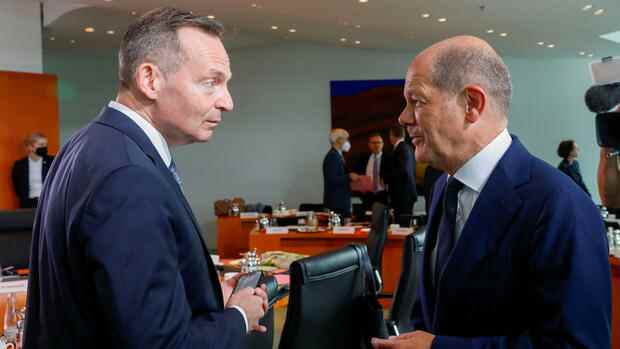Berlin If you want to understand what Carla Hustedt and Stefan Heumann want to achieve, imagine the following scenario: The international community agrees to take joint action against the power of inscrutable algorithms by 2030.
In Germany, young people take to the streets every Friday to demonstrate against poorly digitized schools and the superior power of international tech companies. All decision-makers from politics, business and science work together intensively to advance the digital future of the state.
A scenario that currently sounds more like a utopia. A new think tank of Stiftung Mercator now wants to work on making it at least partially a reality: “Agora Digitale Transformation” is intended to put digitization in the minds of citizens and on the agenda of decision-makers. Stefan Heumann will head the new think tank, and Carla Hustedt, as head of the Mercator Foundation’s “Digital Society” department, is the brains behind the concept.
Mercator wants to equip the new think tank with 8.6 million euros over the next five years. The predecessors “Agora Energiewende” and “Agora Verkehrswende” serve as a blueprint.
Top jobs of the day
Find the best jobs now and
be notified by email.
The calculus: What worked for the two role models, namely putting the climate crisis high on the political agenda, should also work with the new think tank for digitization.
Discussions with politicians and business
In order to find out where the greatest need to catch up digitally is, Hustedt and her team held many discussions with representatives from politics, administration, science and business over the past year. She summarizes the result as follows: “In Germany and Europe there is a lack of vision and an overall strategy for digital change.” Therefore, the think tank primarily wants to answer the question: Where should digital policy actually be headed?
“All of our current crises are related to digitization,” Carla Hustedt. Corona has shown how much is possible despite the pandemic emergency thanks to digital technology – and where there is still a lot of catching up to do.
>> Read here: What Germany can learn from Israel in the pandemic
In Russia’s war of aggression against Ukraine, disinformation would be used as a weapon. “It shows how private-sector business dynamics strengthen dictators,” says Hustedt. However, not everyone is aware of the importance of the digital.
According to her analysis, the problem is that although many people generally consider digitization to be an important topic, there are often reservations and problems with understanding. In her words, Hustedt herself never had this fear of contact with technology and numbers.
According to the head of the “Digitized Society” department, Germany must make progress in digitization.
(Photo: Marzena Skubatz)
“I spent a lot of time in my father’s computer shop,” says the 31-year-old. “My first job was to format floppy disks.” As a result, technology has always played a role – statistics and data analysis have also always interested her.
Your greatest demand is not always to react to digitization, but to set your own accents. “We finally have to get from the back seat to the steering wheel,” says the political scientist.
Stefan Heumann, the head of the new think tank, also points out: “So far, the topic has not reached the top political level.” Heumann is changing to his new task not least out of a certain disillusionment.
Digital Frustration
The 44-year-old was previously a member of the board of the New Responsibility Foundation, which also focuses on technology and social issues. There he was frustrated again and again that the proposals made by the government and ministries were not taken up.
To a certain extent, Heumann did his apprenticeship in the world’s leading digital country, the USA. He lived there for more than eight years and discovered the topic of interaction between the state and the digital for himself: How do digital platforms change election campaigns? And how must politicians act so that the state does not lose control over digitization?
Good networking in political Berlin should help the think tank to influence digitization.
(Photo: Agora Digital Transformation)
Germany, on the other hand, is too entangled in trench warfare in terms of digital policy. On the subject of data protection, for example, where proponents and opponents are often irreconcilable.
It still has to prove whether a new think tank can really help Germany with digitization. The two predecessor organizations of the Mercator Foundation for the energy and transport transition are considered influential civil society lobby groups for climate protection.
>> Read here: The uncanny power – How climate protectors drive the big corporations in front of them
On the one hand, this is due to good networking in political Berlin and beyond. Patrick Graichen, Executive Director of “Agora Energiewende” until December 2021, is State Secretary in Robert Habeck’s Federal Ministry for Economic Affairs and Climate Protection.
Heumann also has a good connection to politics through his work at the foundation – for example, he was an expert member of the German Bundestag’s commission of inquiry “Artificial Intelligence”.
On the other hand, the new “Agora Digitale Transformation” hopes to be able to plan and work on a longer-term basis than many other organizations that are only funded on a project basis thanks to the comfortable financial resources. The money from the Mercator Foundation comes from the assets of the entrepreneurial family Karl Schmidt from Duisburg.
More: “Expensive and nonsensical” – why the state is heading towards an organizational catastrophe with open eyes
